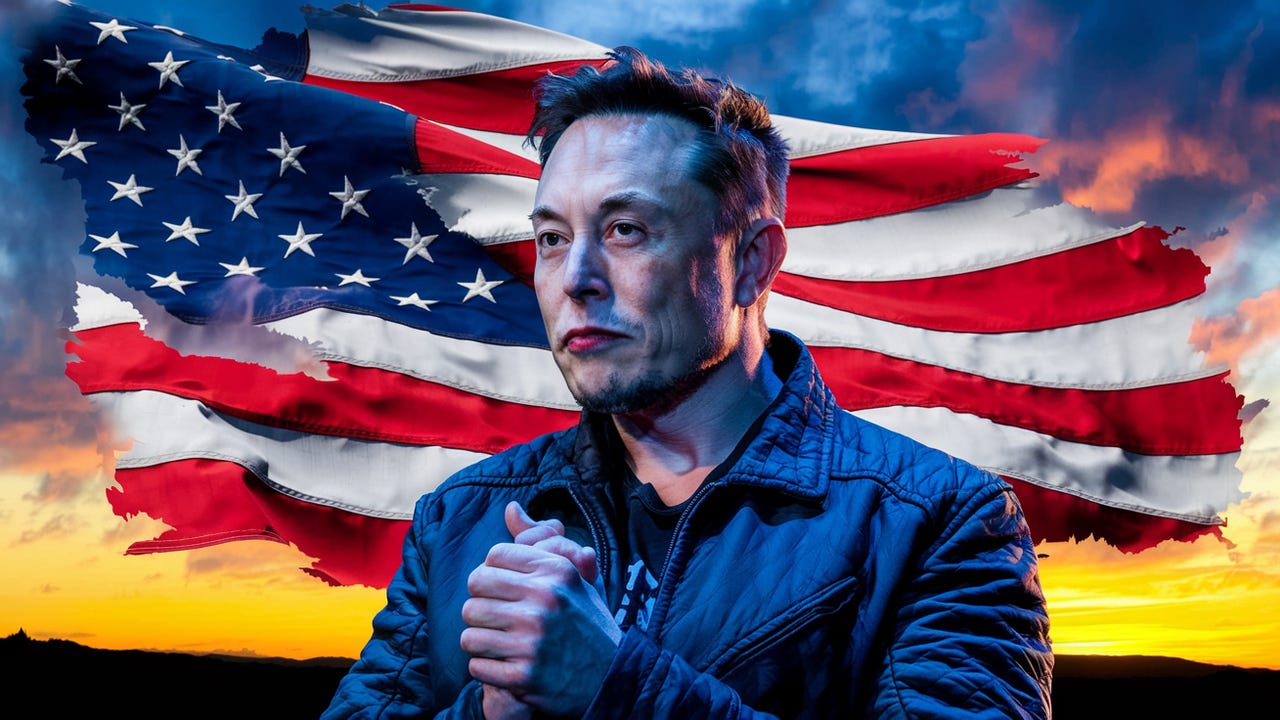THE NEW FEUDALISM: Freedom's Last Stand
In Part 7, we ask if the American Dream - and American Capitalism - can survive under Musk's Crypto-feudalism?
This is part seven of our multi-part investigation. Read Part 1 here, Part 2 here, Part 3 here, part 4 here, Part 5 here, and Part 6 is here.
Final days of our deeply discounted annual plan offer is available below. Prices go up soon.
It's 1954. You wake up in your newly built ranch-style home in Levittown – a house you bought for $8,000 with a G.I. Bill mortgage. Your father was a farmhand who never owned property; now you, at 28, own a piece of America.
You dress for work at the local manufacturing plant where you've just been promoted to floor supervisor after suggesting an improvement to the production process. The morning paper announces a new community college opening nearby. With tuition at just $75 per semester and your union's educational stipend, you could soon become an engineer, not just a supervisor.
Your neighbor waves as he backs out his driveway. He's a plumber who recently started his own business after years working for someone else. The local bank approved his loan despite limited collateral – "character loans," they call them. Last week he hired two assistants, former factory workers who now earn more helping him.
This isn't merely capitalism – it's freedom capitalism where talent and work ethic overcome background and birth. A system where nobody needs permission from above to pursue opportunity below.
And here's the crucial point: America's most prosperous era wasn't built on exclusion – its greatest economic expansion coincided precisely with the periods when it became more inclusive. The economy didn't suffer as opportunities expanded to women and Black Americans – it thrived. Each barrier removed, each door opened to those previously excluded, added new energy, ideas, and entrepreneurship to the system. The Civil Rights Acts of the 1960s coincided with the most sustained economic expansion in American history.
Yarvin's Vision: The Anti-Freedom Economy
Now fast-forward to the crypto-feudal system that Curtis Yarvin envisions and Elon Musk is helping construct. What happens to these pathways to prosperity?
The G.I. Bill that sent 7.8 million veterans to college? Replaced by a token system where educational access depends on your initial token allocation, not your service or potential.
The explosion of homeownership that built middle-class wealth? Transformed into a rentier economy where the Crypto-Kings own the platforms and the rest pay ongoing fees to access them.
The patent system that allowed ordinary inventors to protect their ideas? Dismantled through Musk and Dorsey's "delete all IP law" agenda, ensuring that only those with existing platform control can profit from innovation.
The irony of Yarvin's "CEO-monarch" model is that it rejects the most fundamental features of successful free enterprise: competition, meritocracy, and the ability to challenge established players. His is not a vision of dynamic corporate competition but of permanent monopoly – a system with all the hierarchical control of a corporation but none of the competitive pressure that makes actual businesses innovate and serve consumers.
In a true market system, corporations rise and fall based on performance. But in Yarvin's "corporate state," the initial token distribution ensures that the Crypto-Kings remain permanently entrenched – governing without accountability, regulating without constraints, and appropriating innovations without compensation.
From Concentrated Wealth to Institutionalized Immobility
Today's inequality, while extreme, still allows for upward mobility and operates under democratic oversight. Yarvin's crypto-state would mathematically eliminate both, replacing potential mobility with permanent castes:
The Crypto-Kings (0.001%):
Control platform code and governance rules
Own 80% of all tokens
Possess 800,000× political power of ordinary citizens
From any nationality (currently a fair amount of crypto is foreign-owned).
The Crypto-Lords (0.1%):
Own 15% of all tokens
Serve as technical gatekeepers for system access
Wield 150× political power of ordinary citizens
The Government Class (4%):
Own 4.9% of all tokens
Face constant dilution through governance decisions
Functionally serve the upper classes
The Underclass (95.9%):
Have no governance rights whatsoever
Collectively own just 0.1% of all tokens
Their data serves as their only currency
That 1954 version of you? In Yarvin's system, you would remain permanently in the underclass, generating data and value for the Crypto-Kings regardless of your talents, ideas, or work ethic.
Musk: The Destroyer of the American Dream
The great irony is that Musk himself benefited from the very system of innovation and opportunity he now seeks to dismantle. Consider the entrepreneurs whose stories would be impossible in his crypto-feudal vision:
Joy Mangano, a divorced mother of three, invented the self-wringing Miracle Mop and built a $3 billion business empire. In Musk's system, she would remain in the permanently disenfranchised underclass.
Jan Koum, who grew up on food stamps after immigrating from Ukraine, co-founded WhatsApp and sold it to Facebook for $19 billion. Under token-based governance, the technical gatekeeping would have ensured Koum remained a user generating value for platform owners, never an owner himself.
Madam C.J. Walker, born to former slaves in 1867, became America's first female self-made millionaire by developing hair care products for Black women. In Yarvin's vision, Walker would permanently lack the governance tokens to participate in economic decision-making, regardless of her innovation.






